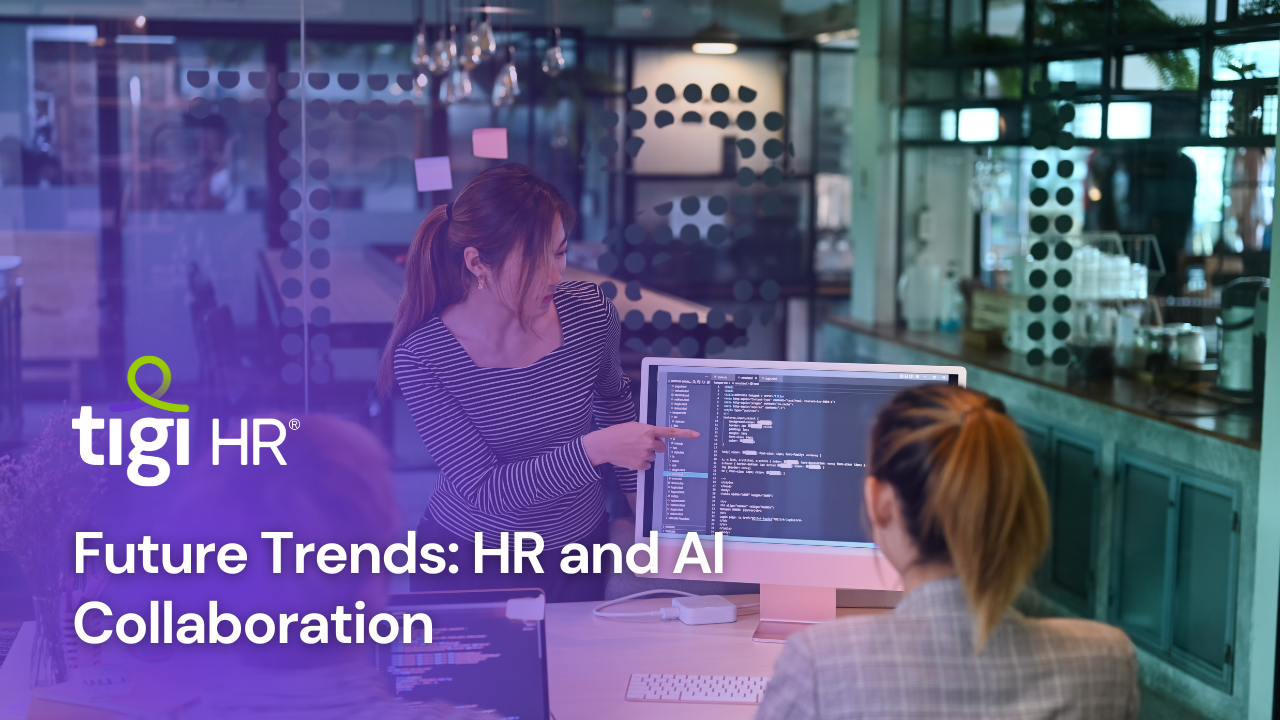As technology continues to advance at a rapid pace, Human Resources (HR) is at the forefront of innovation, leveraging Artificial Intelligence (AI) to reshape talent management practices. The collaboration between HR and AI holds the key to revolutionizing how organizations attract, develop, and retain top talent. In this article, we will explore emerging trends in HR and AI collaboration, such as the integration of AI with augmented reality (AR) or virtual reality (VR) for immersive training experiences. We will also address potential challenges, including resistance to AI adoption, algorithmic bias, and the need for human oversight to ensure responsible and effective implementation.
- AI and AR/VR Integration for Immersive Training
The future of HR and AI collaboration lies in the integration of AI with augmented reality (AR) or virtual reality (VR) technologies to create immersive training experiences for employees. AR and VR technologies have already demonstrated their potential in various industries, and HR is now embracing their applications for training and development.
a. AR-Enhanced Onboarding: AI-powered AR can offer interactive and informative onboarding experiences for new employees. Through smart glasses or mobile devices, employees can access real-time information, guided instructions, and interactive simulations, making the onboarding process more engaging and efficient.
b. VR-Based Soft Skills Training: VR simulations can provide employees with a safe and controlled environment to practice and enhance their soft skills, such as communication, negotiation, and leadership. AI algorithms can analyze their interactions and provide personalized feedback, facilitating continuous improvement.
c. Immersive Technical Training: AI-powered VR can create realistic scenarios for technical training, allowing employees to practice complex procedures, equipment operation, and troubleshooting in a virtual environment. This hands-on training ensures better retention of knowledge and boosts employee confidence.
According to a report by PwC, 23% of organizations are already using VR in some capacity for training and simulations.
- Predictive Analytics for Strategic Workforce Planning
AI-driven predictive analytics is another trend revolutionizing HR practices. By analyzing vast amounts of data, including historical employee performance, industry trends, and market demands, AI algorithms can predict future workforce needs and potential skill gaps. This enables HR professionals to make informed decisions about talent acquisition, retention strategies, and succession planning.
Predictive analytics can also identify flight risk employees, helping HR teams implement targeted retention initiatives. With actionable insights from AI, organizations can align their workforce with strategic business goals and stay ahead in the competitive market.
A survey by the Harvard Business Review found that 75% of companies using AI for workforce planning reported improved workforce productivity.
- Personalized Learning and Development
The integration of AI in learning and development opens up new possibilities for personalized employee training. AI algorithms can analyze individual learning patterns, preferences, and performance data to create customized learning paths for employees. Personalized learning experiences enhance employee engagement, knowledge retention, and skill development.
AI-powered learning platforms can recommend relevant courses, modules, and resources based on employees’ career goals and areas for improvement. This fosters a culture of continuous learning and empowers employees to take ownership of their professional development.
According to IBM, 83% of employees believe that personalized learning improves their engagement and satisfaction at work.
- AI-Driven Performance Management
Performance management is being transformed by AI, making it more data-driven and objective. AI algorithms can analyze employee performance metrics, feedback, and achievements to provide real-time insights to managers and HR professionals.
AI can also facilitate continuous feedback and coaching through chatbots or virtual assistants, enabling employees to receive timely guidance and support for performance improvement. This real-time feedback loop contributes to employee development and ensures a more agile and responsive performance management process.
A survey by Mercer found that 98% of HR leaders believe AI will improve performance management in their organizations.
- Challenges and Considerations in HR and AI Collaboration
While the collaboration between HR and AI offers immense potential, there are several challenges that organizations must address for successful implementation:
a. Resistance to AI Adoption: Employees and HR professionals may face resistance to AI adoption due to fear of job displacement or concerns about AI’s objectivity. Organizations need to promote a culture of openness and communication to allay these fears and highlight the benefits of AI in improving HR processes.
b. Algorithmic Bias: AI algorithms are only as unbiased as the data on which they are trained. HR professionals must be vigilant in monitoring and addressing algorithmic bias to ensure fair and equitable decision-making throughout the talent management process.
c. Ethical AI Implementation: As AI becomes more integral to HR practices, ethical considerations become paramount. Ensuring data privacy, transparency, and accountability in AI-driven decisions are essential for responsible AI implementation.
d. Human Oversight: Despite AI’s capabilities, human oversight is crucial to ensure AI-generated insights align with organizational values and goals. HR professionals should not solely rely on AI recommendations but rather use them as informed input for decision-making.
According to a survey by Deloitte, 42% of HR professionals reported that the biggest challenge in AI adoption is identifying use cases that align with their organization’s needs.
Conclusion for HR and AI Collaboration
The collaboration between HR and AI is shaping the future of talent management, revolutionizing the way organizations attract, develop, and retain top talent. The integration of AI with augmented reality (AR) or virtual reality (VR) offers immersive training experiences, enhancing employee onboarding, soft skills training, and technical proficiency.
AI-driven predictive analytics enables strategic workforce planning and empowers organizations to make data-driven decisions about talent acquisition and retention. Personalized learning and development experiences cater to individual employee needs, fostering continuous
Also Read: AI Driven Recruitment Strategies





